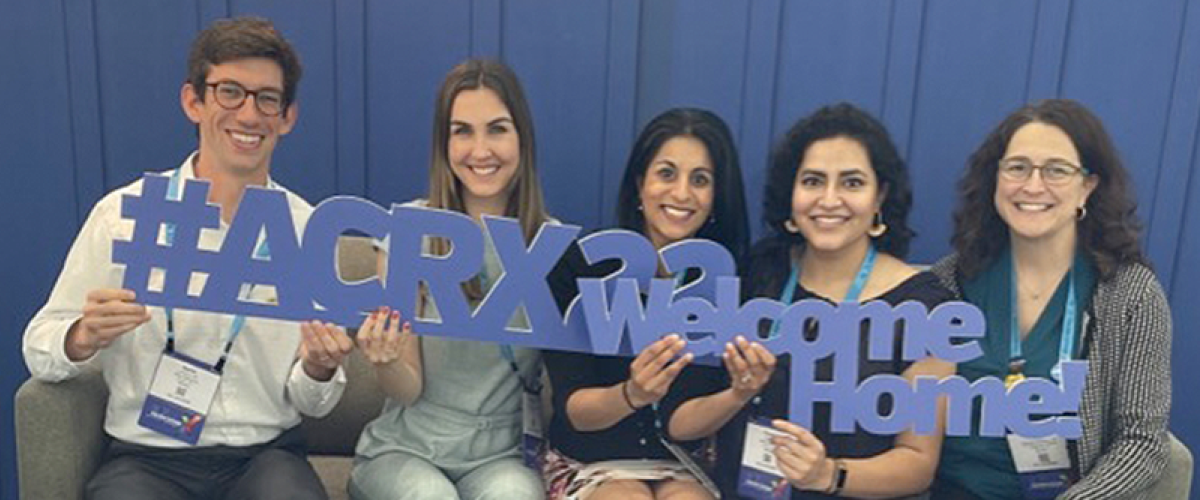
Letter from the Program Director
The Adult Rheumatology Fellowship Program at Duke University Medical Center has three primary goals. First, we train outstanding rheumatologists who are completely entrustable to provide comprehensive clinical care. Second, we develop leaders who are equipped to make a difference in the world of rheumatology through research, teaching, quality improvement, advocacy, and clinical leadership. Third, we invest habits of life-long learning and collaboration.
We develop outstanding rheumatologists by enveloping fellows into our supportive clinical learning environment, where they are mentored through progressive levels of independence until each fellow can confidently thrive as an expert consultant. Our fellows see complex inpatients at Duke University Hospital, provide comprehensive rheumatology care for veterans at the Durham Veterans Affairs Medical Center, and experience a variety of subspecialty clinics including lupus, autoimmunity in pregnancy, rheumatology-oncology, scleroderma, myositis, inflammatory eye disease, neuroinflammatory disease, and musculoskeletal ultrasound.
Developing future leaders starts with getting to know each of our fellows on a personal level, finding out where they feel inspiration and passion, and connecting them with the right mentors and resources to bring out their best. We help our fellows navigate the plethora of academic opportunities that exist at Duke to explore their interests. Fellows have the opportunity to work with faculty mentors in research programs spanning clinical, translational, basic, social science, quality improvement, and big data. This breadth allows fellows to successfully pursue any career path. In addition, each senior fellow has the opportunity to hone their leadership skills by leading one conference series with a faculty mentor, and we coach fellows to take ownership of the inpatient consultation teams, where they teach trainees.
The best rheumatologists are reflective practitioners who actively learn, improve, and collaborate with others. As such, we instill habits of life-long learning and collaboration throughout fellowship training. Our core curriculum emphasizes active-learning strategies, encouraging fellows to critique rheumatology literature as they engage in peer teaching with guidance from expert faculty. In addition, our fellows engage in our yearly quality improvement curriculum, through which fellows gain the skills necessary to lead their own improvement efforts independently by the end of training.
Our program offers sufficient flexibility to help fellows meet their individual career goals. We offer a two-year fellowship leading to eligibility for ABIM certification in rheumatology for candidates who wish primarily to become primarily clinicians or clinician educators. This fellowship leads to eligibility for ABIM certification in rheumatology. Fellows interested in becoming physician-researchers may pursue one or more years of additional research training beyond the two-year, ACGME-required training period. Duke Rheumatology also offers a combined four-year program in adult and pediatric rheumatology that leads to board eligibility in both fields. This program is based in the Duke Division of Pediatric Rheumatology.
In summary, our program is committed to improving the lives of people suffering from rheumatic diseases by training expert clinicians, innovative leaders, and life-long learners and collaborators. Graduates of the program have achieved positions of leadership and distinction in virtually all fields related to rheumatology. Approximately 2/3 of recent fellowship graduates have chosen academic careers, and the remainder are in private practice. We are proud to continue making a difference in the world of rheumatology through our fellowship program.
Sincerely,

David Leverenz, MD, MEd
Program Director